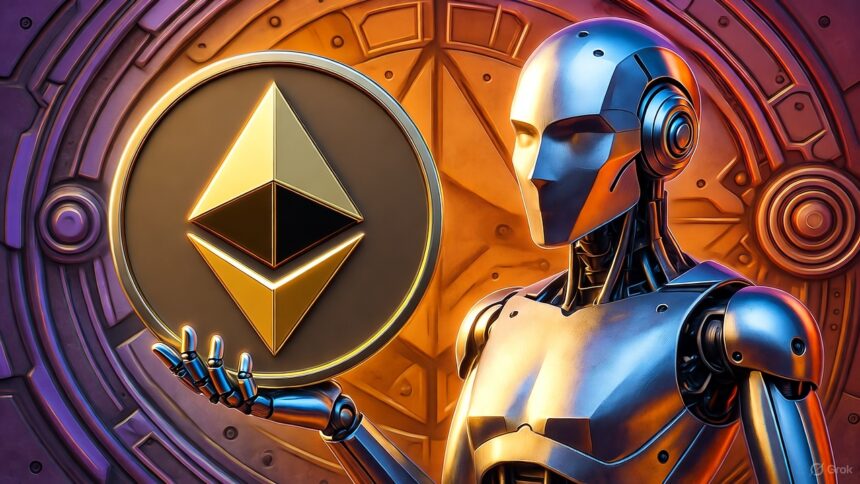Developers from Google, the Ethereum Foundation (EF), and the Coinbase exchange announced a new technical standard called ERC-8004 that is already operational on the Ethereum network.
This proposal was created by Marco De Rossi, MetaMask Wallet Artificial Intelligence Lead, together with Davide Crapis (EF), Jordan Ellis (Google), and Erik Reppel (Coinbase).
In the Ethereum ecosystem, ERC (Ethereum Request for Comments) is a technical specification that defines: How certain components operate within the networktokens and smart contracts.
ERC-8004 proposes a model in which artificial intelligence agents (AIs, programs that perform autonomous tasks) can discover, evaluate, and collaborate. No prior trust between the parties is required.
In this case, instead of the central authority verifying the participants, Trust is established by three records Here’s what runs on Ethereum, as described in the ERC-8004 documentation:
- identification cardis based on the ERC-721 standard (the same one that defines non-fungible tokens or NFTs) and gives each agent its own censorship-resistant identity.
- record of reputationagents can publish and reference ratings and scores calculated both on-chain and off-chain, allowing them to create professional reputations, audits, or insurance services.
- Verification recordresponsible for gathering external validation on each agent’s work. These verifications may include repetition of tasks by other verifiers, use of automated systems to verify results through cryptographic proof, or review by oracles and trusted judges acting as auditors.
A new trust framework between autonomous agents on Ethereum
The standards considered here: Tiered trust model systemwhich can be adjusted according to the risk of each task performed by each AI application.
For example, a simple interaction (such as ordering a pizza) requires a low security level, while a medical diagnosis or a complex financial transaction requires additional verification.
The goal of ERC-8004 is to enable an open AI agent economy. Discover each other and collaborate without relying on a centralized platform.
This includes having agents autonomously perform tasks such as financial transactions, code reviews, and medical diagnostics, and verifying identities, reputations, and outcomes between agents.
Impact of the new Ethereum ERC-8004 standard
This proposal offers several potential benefits. These include discovering trusted agents, validating competencies without prior interaction, portability of reputations across different platforms, and scalability of validation depending on the level of risk.
For users and developers of the Ethereum ecosystem, ERC-8004 could serve as a foundation For distributed agent networks They can perform complex tasks both on and off-chain with varying degrees of reliability and autonomy.
Furthermore, we introduce a framework that combines transparency, verifiability, and privacy without relying on a central entity to determine rules or control interactions.
(Tag Translation)Blockchain


